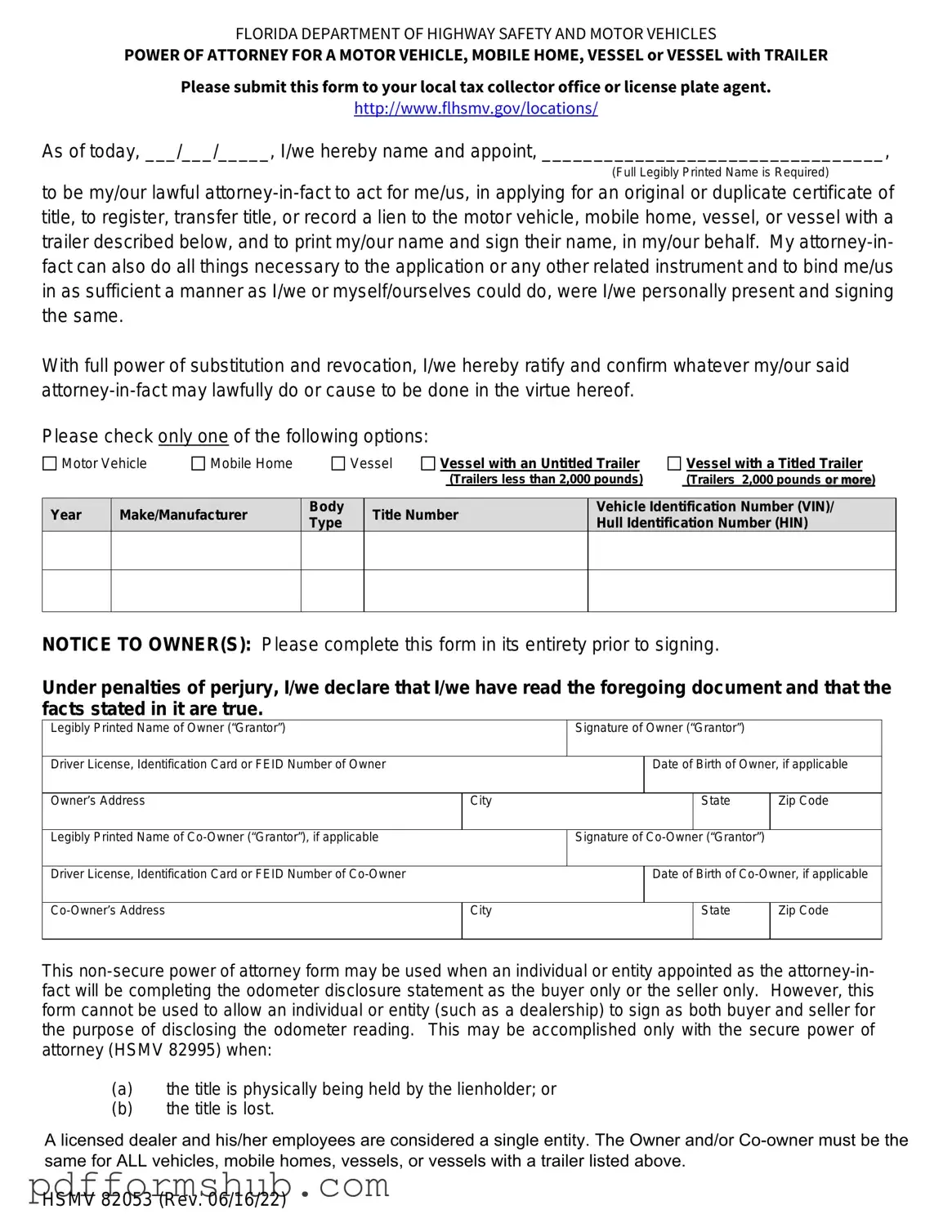Fill in Your Florida Vehicle POA form 82053 Form
The Florida Vehicle POA Form 82053 is a legal document that allows you to designate someone else to act on your behalf regarding vehicle-related matters, such as title transfers and registration. This form is essential for anyone who needs to authorize another person to handle their vehicle transactions. If you need to fill out this form, click the button below to get started!
Customize Form

Fill in Your Florida Vehicle POA form 82053 Form
Customize Form

Customize Form
or
Free PDF Form
Short deadline? Complete this form now
Complete Florida Vehicle POA form 82053 online without printing hassles.